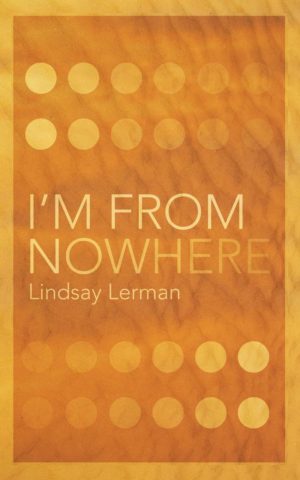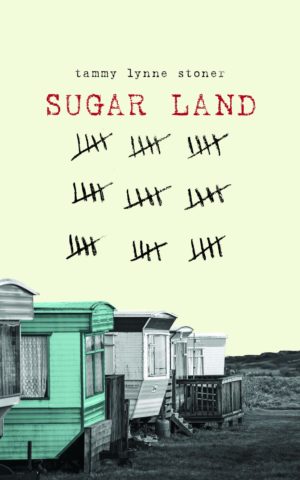Stickman
The neon sign says ‘Billiards.’ The sign hangs above twin steel doors that are dented from kicks, more from the inside then out. Inside the doors there is a wide staircase with tintype walls. At the top of the stairs, when you turn the corner, you enter a huge parking lot of old pool tables with ripped stained felt. Wire-strung woodchips keep score over each table. The cues, lined up in racks on the walls, are all warped. The balls are chipped and take weird rolls down the rutted surfaces. But when they fall into the leather pockets, the balls make a gentle ‘poof’ sound, like they are dropped into a soft leather mitt.
Sitting at a podium is a guy named Charlie. Charlie has a head like a cue ball and mismatched burnsides starting behind a huge pair of ears, which make him look funny, but he isn’t. “28,” he says when you walk in, handing you a tray of chipped balls, or “29.” “8 dollars,” he says when you handed him the tray two hours later, or “7 dollars.” That is it from Charlie. Next to the podium there is a coke machine. For fifty cents, if you push the ‘Fanta Orange’ button, out pops a frosty can of Schlitz. “Here,” Charlie says, handing you a small paper bag which you have to keep the Schlitz in, because drinking on the premises is forbidden. Smoking is not, and the place is filled with smoke, even when nobody is there.
*
Today Charlie puts you at table 28, next to a hissing radiator, right under a huge picture window. You pick a cue, rack and break. The balls scatter across 28’s dusty surface, finding ruts and creases and a slow hill down the right bank, and a ball falls. It’s a stripe. You don’t like stripes. This isn’t going to go well, you think.
You look up at the table 31 and in the shadows you see Stickman, leaning on his cue, staring down at the passersbye on the street. You light up a smoke.
“Hey man,” you say—you never call him Stickman, not in front of him—“What are you doing?”
“I’m having a face attack,” he says without looking up.
“Oh,” you say. “Cool.” You drink a slug of Schlitz and hit a bank shot. Then you walk the dog on the eleven. It’s all looking up, you think, but then you get stuck on a rail behind the three. Before you consider the consequences you’ve got the eight ball dribbling into the side pocket for a scratch.
You drain you beer can and crumple it, bag and all, and put it under the table. You look over at the coke machine, then at your neighbor.
“Hey man. You want a Schlitz?”
“No,” Stickman says, still staring down there at the street, fixated. “No,” he repeats in that skinny New Orleans voice of his, “not now man. I’m almost finished here.”
“Suit yourself.” You buy two more Schlitz from the machine. Without looking up, Charlie hands you two more bags. You rack again, and break for solids, and this goes much better. In three rounds you’ve run the next-to-last ball into the side pocket. When it falls in the mitt- poof- Stickman walks over.
“Hey, man.” He says. “Wow. You ever have yourself a face attack?”
“Now, what exactly are you talking about,” you ask. You bank the eight ball off the far rail-careful, because Stickman is watching, to tap the desired pocket beforehand with the tip of your cue-and the ball rolls submissively in. Poof.
“Well, it’s like this,” he continues. “A face attack is when you are walking around this here city all day, and you see all these faces, and your brain just can’t process it, man- and suddenly it’s like all them people have plastic mask on, with long rubbery noses and eyes like coals and skin like dripping wax and stuff.”
Stickman pulls a bottle of something out of his pocket, and sucks on it mindlessly. When he stops the whole pool hall smells like licorice. “That’s what a face attack is,” he says, looking over his shoulder at the picture window, the masses of bodies, the orange glow of river light bouncing off the face of the municipal building across the street. “Face attacks,” he says, and he shutters. “Man. They give me the Jimmies.”
*
You walk out together, you and Stickman, and go a few blocks east on the avenue. You would often do this. At a cross street, you part ways- him for a home in the old neighborhood, in the days that it was a much different place then it is now; and you for a bar to sit alone in. This was a time when you would pick a bar, pretend you were waiting for a friend, drink five or six drinks, pretend your friend never showed up, and head for the subway home.
“So I was wondering,” Stickman says on this particular night, “what you might be doing this evening.”
“I’m doing nothing,” you say.
“Well, it’s like this,” Stickman says. “I’m going over to visit my sister. You remember my sister?”
You met Stickman’s sister once. You were walking one late summer night past some street vendors. Stickman, standing by a vendor, waved you over. He was talking to a girl who was selling jewelry. What you remember about her was that she looked like a cat without whiskers. Her jewelry was made mostly of bones. She was Stickman’s sister. She didn’t speak to you or look at you when he introduced you. She started railing into Stickman pretty hard, something about losing her keys or bringing her stuff back to his apartment or something. You stood there awkwardly for a few minutes, and then you left.
“Yeah,” you say. “I remember your sister.”
“Well, yeah.”
You stop on the corner. Stickman tries to hitch up his pants, which is kind of ridiculous-he is little more than a skeleton, and has nothing to hitch his pants to. He lights a cigarette, cupping his hands, then offers one to you. “Well, the thing is, I got this little old bookshelf I got to bring over to her house. You think you could give me a hand bringing it over there?”
“Huh,” you say, taking a slow drag of the cigarette, its embers glowing warmly just under the tip of your cold nose. “A bookshelf, huh?”
“Oh, she’ll feed us a big dinner if we go over there now, she cooks jambalaya every Sunday night, all shrimp and andui sausage and stuff. Yes, sir. Ho, boy.”
“Sure.” You haven’t eaten all day. “Sure I’ll help you. Where does she live?”
“She’s just over the river there, right over that there bridge.”
“Bridge? What bridge?” But he has already started walking, and you follow him.
*
Stickman stops in front of the steel fence of a city graveyard. He looks up at the unlit windows of an apartment building behind the graveyard, its back windows and fire escapes and laundry lines and pipes and wires, all sticking out over the graves.
“Well, that there’s my place,” he says. “Give me a hand, will you?”
You help him push a steel gate inward, revealing a little path between the gravestones that leads to a cellar door. He pulls on the cellar door, and it swings open. You enter a pitch-black basement. You stumble through darkness, your arms out in front of you. Stickman says “shush,” and then “shush, now.” He pulls on a light cord; a rickety staircase appears. You follow Stickman up three flights. He jiggles a key into a door lock. The door pops open. You are standing in a bare room. Two windows. No curtains. No furniture, except for a big empty bookcase-maybe ten feet tall.
“There she be,” Stickman says. “Now all we got to do is get her back down there, the way we came.”
“Can’t we just take it out through the front door?”
“Now, don’t be ridiculous,” Stickman says. “If the landlord sees us walking out the front door, he’s going to start asking some questions.”
“What questions?” You ask. But Stickman is already taking the bookcase down and resting one end on his shoulder. You pick up the other end. It is heavy, and you are not in the best of shape. “There now,” he says, leading the bookcase and you back down the narrow staircase. In three blocks you are carrying it down into the subway station.
“You can’t take that thing on the train,” the token booth clerk says without looking up from his paper.
You walk back up to the avenue and Stickman tries to wave a cab.
“You can’t take that thing in a taxi,” one driver slows down to yell at you.
You stand the bookcase up on the corner. Stickman offers you another cigarette.
“Well,” you say, “we gave it our best shot.”
“Well,” Stickman says after a minute, flicking his cigarette out into the avenue. “I guess we’re just going to have to walk it there.”
*
The blocks pass by and the City and night parts and streaks around you. Faces float by but they stare straight ahead, icy and emotionless. On long streets, kids in snorkel jackets run around you and under the bookshelf- “come on mister,” they yell, “let me ride in it!”Along the way, Stickman tells you a very long story about growing up in a southern city—his father was a Romanian Prince, or something, who escaped the Nazis, or something, and taught tennis to fat rich children at a private club while his own children went hungry—and Stickman and his sister were taken in by the poor family next door who fed them plates of jambalaya every Sunday and taught them how to catch crayfish. Or something. You fade in and out of the story. You are thirsty, and thinking of your next beer, more than you are thinking about Jambalaya.
But then you start thinking of the sister, the one who looks like a cat. Maybe she was just cranky that day. She has good reason to be hostile at first, you think, with a childhood like that. But she’ll be so happy to get this bookshelf. She’ll be so surprised that Stickman and his big friend carried it all the way to her house, all the way across the river. She’ll invite you to stay for dinner, and as the three of you sit around her table, eating a big Jambalaya dinner, she’ll tell you all about their childhood and their father and the Nazis and the tennis and the poor crayfish family, and you’ll listen really closely to her. It will be the start of a new and different time in your life, when you start to hang out with real people. You will have real friends, like Stickman and his sister, and you won’t hang out in bars alone pretending to wait for imaginary friends anymore.
*
“Hold up here now a minute,” Stickman says. You have reached the foot of a metal staircase climbing to a walkway over a bridge. He re-hitches up his pants. Again with the pants. He’s starting to look crazy. He’s breathing heavy. You know that you are too—even in the March cold, you’ve sweated out all of the beer—but you’re not giving up until he does.
“So listen, man,” you ask him, while accepting another cigarette. “Tell me the truth, now. Is this really your bookcase? Or did we just steal it?”
“Steal it? Now that’s just plain crazy.” He reaches into his pocket, pulls out the bottle, and fills the air with licorice. “This here is my book case. My bookcase. And I’m giving it to my sister. Come on now,” he says.
You struggle up the stairs. At the top, there’s a broken chain-link fence. You pass through it, and the headlights of cars crossing the bridge stream below you. The walkway arcs gently above and between the roadways, surrounded by the skeletal steel ribs of the bridge, all streaked with graffiti. You walk across steel plates spot-welded onto the girders. They are warped, and rock upwards when you step on them, exposing a crack between where you are walking and the dark black river well below you. You start thinking of the sister, the Cat, again. You start to daydream that she’s asking you questions about your life. You try anticipating what her questions will be, and what your answers will be.
At the far end of the bridge, the walkway grows darker. The bookcase is cutting a divet into your neck and Stickman is muttering and cursing ten feet behind you. At the landing before another set of steps you can make out the silhouettes of four or five men lying on the steel sheets, their hooded heads nodded down into their chests . One has his right pants leg rolled up and a needle attached to his ankle, standing up like it fell out of the sky.
“Hey, man, is that a bookcase?” He asks.
“Yes,” you say.
“Is that oak?”
“No sir,” Stickman says. “That’s maple.”
“Maple,” he says. “Man. You can’t beat maple.”
*
An hour and thirty blocks later you turn a corner to a row of little frame houses, neatly lit by street lamps. You turn so that Stickman buzzes the door. His sister, the Cat, pulls it open. She is on the telephone, a long cord leading back into an unlit kitchen. It is a very nice little house, somebody else’s. It does not smell like Jambalaya.
“So this crazy thing happened where we couldn’t get it on the subway, and we couldn’t get us a cab,” Stickman starts telling her. Her back is turned and she is still talking. “So we just started walking with it, and before you know it-“
“Just put it over THERE,” she turns and hisses at him. “No, not you,” she says into the phone.
You help him put the bookshelf into place. Stickman shrugs at you, then turns to her. You both stand there for a minute, your hands in your pockets. She turns around and glares at both of you.
“Can’t you see I’m busy here?” She says.
You walk out together in silence. Stickman leads you to the subway and buys you a token. You ride together in silence. He starts drinking that stuff again, really draining the bottle; the subway car fills with the licorice smell but nobody looks up. At his stop Stickman gets up, unfolding himself, and pulling his pants up one last time.
“We must have walked that bookcase like six miles or something,” he says.
At your stop you find a bar you haven’t frequented yet. You sit down on a stool, and some time later, you come out. You are standing in the street alone at three in the morning, looking out at the streaks of people still coming and going. And then it happens-everybody who passes wears a plastic mask with a rubber nose and eyes like black coals, shaking, shaking. “Face attack!” you think. “It’s a face attack!” You can’t wait to tell Stickman. But when you go back to the Billiards Hall a few days later, the steel doors are locked forever.
**
Frank Haberle’s short stories have won the 2011 Pen Parentis Award, the 2013 Sustainable Arts Foundation Award, and the 2017 Beautiful Loser Magazine Award. They have appeared in magazines including the Stockholm Literary Review, Inwood Indiana, Necessary Fiction, the Adirondack Review, Smokelong Quarterly, Melic Review, Wilderness House Literary Review, Cantaraville and Hot Metal Press. Frank works professionally as a nonprofit grantwriter and volunteers as a workshop leader for the NY Writers Coalition. He lives in Brooklyn, New York with his wife and three children.
**
Image: Flickr / Smeikx







